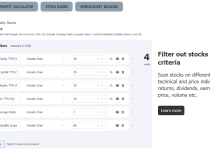The Profound Influence of a Stress-Free Environment on Employee Mental Health and the Rise of Remote Work
In an era where employee well-being has become tantamount to organizational success, understanding the nuanced ways in which the work environment impacts mental health is crucial. Among the various aspects of the work environment, the stress levels it fosters arguably play the most significant role in shaping employee well-being. As traditional workplaces evolve and remote work becomes increasingly popular, it’s essential to analyze the positive ramifications of stress-free environments and the distinct benefits of working from home.
Impact of a Stress-Free Environment on Mental Health:
- Cognitive Flourishing: Under conditions of prolonged stress, the brain’s functionality can suffer. Concentration wavers, decision-making gets impaired, and forgetfulness can become common. Conversely, a stress-free environment acts as a catalyst for enhanced cognitive abilities. With diminished cortisol levels, the brain operates at its optimum, facilitating better decision-making, sharper memory recall, and a heightened attention span.
- Nurturing Creativity: Stress acts as a bottleneck for creativity. When the brain is preoccupied with stressors, there’s little room for innovative thought. On the other hand, a tranquil and supportive environment can be the breeding ground for creativity. Employees are more inclined to take risks, brainstorm openly, and come up with groundbreaking ideas when they’re not perpetually under the gun.
- Mental Health Protection: Chronic stress doesn’t just hamper productivity; it can lead to long-lasting mental health issues. Depression, anxiety disorders, and burnout are frequently linked to incessant workplace stress. In contrast, a serene work environment acts as a protective shield, ensuring employees remain psychologically robust.
- Emotional Resilience: A workplace devoid of unnecessary stressors promotes emotional stability. Employees in such environments tend to exhibit superior emotional regulation, leading to fewer conflicts, more harmonious team dynamics, and overall better interpersonal relationships.
- Holistic Well-being: Beyond just mental health, a stress-free environment promotes holistic well-being. Employees report higher levels of satisfaction, a profound sense of purpose, and an enhanced quality of life when they aren’t battling daily stressors.
The Evolution to Remote Work and Its Benefits:
- Flexible Lifestyle Integration: One of the defining features of remote work is the unparalleled flexibility it provides. This flexibility extends beyond just work hours. Employees can weave in personal commitments, hobbies, and rest, crafting a work-life tapestry that suits them best. This tailored approach to work often leads to profound job satisfaction and reduced burnout.
- Personalized Workspace Sanctuary: Unlike the often sterile confines of traditional offices, home workspaces can be personal sanctuaries. Whether it’s the softness of a favorite chair, the inspirational view from a window, or the comforting presence of a pet, these personal touches can make a world of difference in an employee’s mental well-being.
- The Commute Conundrum: The daily grind of commuting, often characterized by traffic snarls, crowded public transport, and wasted hours, can be a significant stress inducer. Remote work liberates employees from this daily ordeal, preserving mental energy and ensuring a more positive start and end to the workday.
- Harmonious Work-Life Synergy: The demarcations between professional and personal life become more fluid in a remote working setup. This can lead to a more harmonious integration of various life roles, be it as a professional, a parent, a spouse, or a caregiver.
- Trust and Empowerment: When organizations offer the option to work remotely, it’s an implicit signal of trust. This trust can be tremendously empowering for employees, fostering a sense of ownership, responsibility, and motivation.
- Distancing from Office Politics: Remote work can sometimes serve as a refuge from the intricate web of office politics, gossip, and interpersonal conflicts. The physical distance can lead to a more peaceful, focused, and objective work experience.
However, it’s vital to remember that remote work isn’t a universal solution. While many cherish the autonomy it provides, others might grapple with feelings of isolation, difficulty in setting boundaries, or distractions at home. As remote work continues to gain traction, organizations need to adopt a flexible and empathetic approach, providing resources, tools, and support mechanisms to cater to the diverse needs of their workforce.
Conclusion:
The profound influence of a work environment on an employee’s mental health can’t be overstated. As the world of work undergoes seismic shifts, with remote work becoming a mainstay, it’s essential to prioritize employee well-being. Embracing the benefits of stress-free environments, whether in traditional office spaces or the comfort of one’s home, will pave the way for healthier, happier, and more productive workforces.




